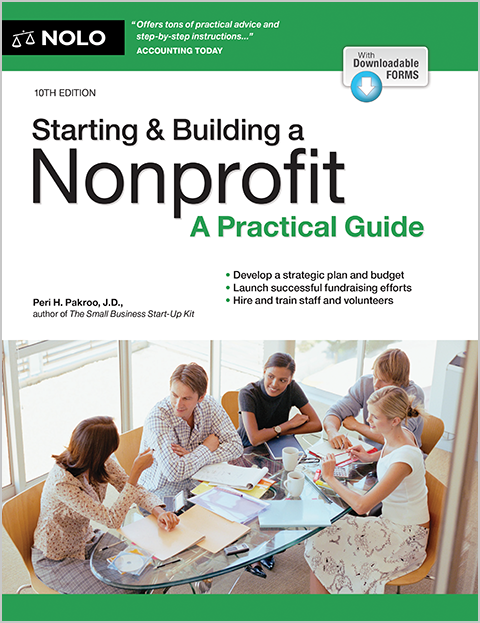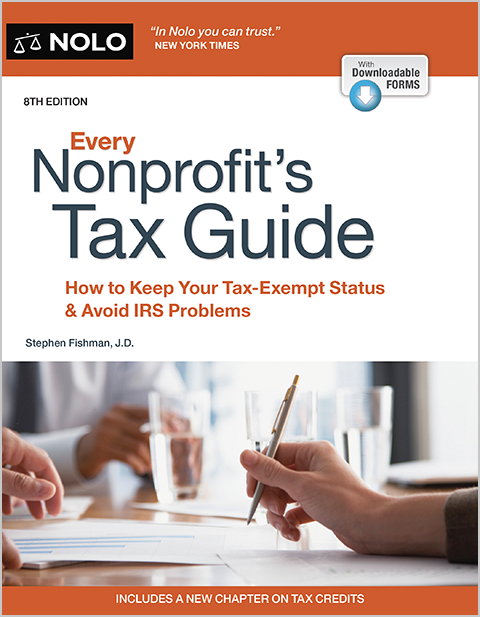Learn the reasons why every nonprofit should have a conflict of interest policy, and what to include in the document.
Every nonprofit should create, implement, and regularly review a conflict of interest policy. Conflicts of interest exist when directors have personal or financial interests that could influence their judgment in making decisions for the nonprofit.
Many states mandate that all nonprofits have a conflict of interest policy, and organizations can't obtain 501(c)(3) tax-exempt status from the IRS without the policy.
- What Is a Conflict of Interest Policy for Nonprofits?
- What Is a Conflict of Interest?
- Disclosure Requirements for Board Members
- How to Handle a Conflict that Has Been Disclosed
- Handling Conflicts that Have Not Been Disclosed
- Recording the Proceedings
- Consequences for Violating Conflict of Interest Policy
- Director Training and Annual Review
What Is a Conflict of Interest Policy for Nonprofits?
A conflict of interest policy provides guidance on how the board should identify and handle a conflict and should include:
- a description of the acts or situations that constitute a conflict of interest
- when and how the directors must disclose conflicts
- how to record the board's proceedings and findings after a director discloses a conflict or the board discovers one
- the action the board will take after it discovers a director violated the policy, and
- procedures for reviewing and updating the policy.
When the board allows directors to self-deal or misuse the organization's assets, they put the nonprofit's reputation as a trustworthy organization at risk. As a result, it's a best practice for all nonprofits to create and follow a policy, even if the state does not require it.
What Is a Conflict of Interest?
The policy should clearly explain that conflicts of interest exist when directors have or create personal or financial interests that benefit them personally or could influence them when making decisions for the nonprofit. Conflicts can arise as a result of board action or from the acts of individual members. The policy should list examples of conflicts, such as:
Conflicts created by board action. Some acts by the board can create conflicts, even when the decisions are innocently motivated. Examples include:
- giving money or property to a director for any purpose (including compensation for goods or services)
- providing discounts to directors for the nonprofit's goods or services
- allowing a director to use the nonprofit's space, equipment, or personnel for anything other than approved nonprofit activities and programs
- entering into a contract with a business that a director owns or profits from
- hiring a director as an employee
- allowing third parties that deal with the nonprofit to give gifts to directors
- providing the above benefits to a spouse or relative of a director, and
- other financial or personal interests that could impair, or might reasonably appear to impair, the director's exercise of unbiased judgment.
Conflicts created by board members. Board members themselves can create conflicts when they take certain actions on their own. For instance:
- choosing to work with vendors with whom the director has a familial relationship
- voting for policies that have an indirect and positive impact on the director's finances, and
- influencing people or organizations with whom the nonprofit does business, resulting in a monetary advantage to the member.
When the board realizes that they have a situation that has the appearance of a conflict, the board should proceed as if there is a conflict, even if no conflict exists. This might strike you as unfair, but it's part of the unspoken bargain the nonprofit struck when it asked the government for the privilege of not paying taxes on its earnings. In exchange for not having to pay taxes, nonprofits must be squeaky clean, avoiding even the whiff of self-dealing.
For example, say a director is an employee of XYZ Paper Supplies Co., and the nonprofit is considering a contract to have XYZ provide all of the nonprofit's paper goods. Even if the director would not receive compensation or other benefits from the contract, it could appear to others to be a conflict and the board should treat it as such. This doesn't mean that under no circumstances could the board award the contract to XYZ—see the discussion below.
Disclosure Requirements for Board Members
The policy should explain what happens after a director identifies a conflict. At the minimum, the director with the conflict must disclose the conflict at the time the matter arises. The director should explain how the decision could benefit them personally, or how it might appear as such.
To learn as much as possible about potential conflicts, you might ask all directors and director candidates to complete disclosure forms that identify their affiliations and activities. This could include other board of director positions, jobs, businesses the directors own, and other organizations in which the director has a substantial financial interest. Disclosure forms allow the board to identify potential conflicts before they become an issue. Further, the board might decide to pass on a director candidate who has too many conflicts to effectively participate in board meetings.
How to Handle a Conflict that Has Been Disclosed
The policy should explain what happens after a board member discloses a conflict on a matter the board is considering. After a board member discloses a conflict, the other board members should decide if a conflict exists. If the board determines there is a conflict, the interested director should leave the meeting.
After the director leaves, the remaining board members should discuss the matter and vote based on the best interest of the organization, and not whether their decision will benefit the director with the conflict. In our XYZ paper example, the board should entertain several competing bids and, without input from the director-employee, choose the one that best serves the organization. In some cases, the board's decision will benefit the interested director, which is an acceptable outcome so long as the board followed its conflict of interest policy.
Handling Conflicts that Have Not Been Disclosed
Sometimes, a conflict arises in the absence of a board member's disclosure, and the board must deal with it after the fact. This serious situation could mean that the director in question didn't understand (or wish to follow) the organization's policy on disclosure. The outcome from a lack of disclosure can be unsatisfactory (with respect to the act already done) and have repercussions for the errant director.
For example, suppose the local farmers' market is run by Sunnyside, a nonprofit. Its executive director, Jess, is charged with renewing the nonprofit's insurance. Jess announces at a board meeting that she forgot about the renewal date and didn't have time to collect competing bids. But, she says happily, her husband is an insurance agent, and he was able to quickly assemble a bid, which she signed, thus saving Sunnyside from operating without insurance.
The board heaves a sigh of relief but doesn't deal with Jess's actions—did she deliberately let the dates slip so she could steer the contract to her husband, or was she innocently forgetful and failed to alert the board before signing the contract? Either way, the board should address the situation.
Recording the Proceedings
The board should maintain records of the proceedings where a director disclosed a conflict or the board discovered one after the fact. Specifically, the minutes of the meeting should provide the name of the director with the conflict, the nature of the conflict, and the board's decision as to whether a conflict existed. If the board identifies a conflict, the minutes should show which directors stayed for the meeting and discussed the matter, the votes cast for or against it, and the content of the discussion (including the alternatives the board considered).
Consequences for Violating Conflict of Interest Policy
Your policy should explain what happens when the board discovers that a director did not properly disclose a conflict. The director with the conflict should have the opportunity to explain the surrounding circumstances and reason for failing to disclose. After reviewing the information, the board might decide to withdraw from the transaction when possible (by canceling a contract or asking for a refund, for example). In serious situations (such as fraud), the board might remove the director.
Director Training and Annual Review
A conflict of interest policy does little good without training and review. After the board creates the policy, they should take time to discuss the policy and procedures at a board meeting, and each director should review and sign an agreement to follow the policy. New directors should receive training on the policy as part of the onboarding process. The board secretary (or other designated officer) should store the signed agreements with the nonprofit's corporate records.
Schedule time at your annual meeting to review the policy, make updates as needed, and ask the directors to sign new agreements. If you maintain disclosure forms, the directors should update them on an annual basis.
- What Is a Conflict of Interest Policy for Nonprofits?
- What Is a Conflict of Interest?
- Disclosure Requirements for Board Members
- How to Handle a Conflict that Has Been Disclosed
- Handling Conflicts that Have Not Been Disclosed
- Recording the Proceedings
- Consequences for Violating Conflict of Interest Policy
- Director Training and Annual Review



